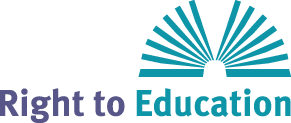"In our globalized world, education and the fight against discrimination remains a major issue. Thus discriminatory practices still exist today despite the fact that discrimination has no justification in international law.
Faced with this challenge, not only is education required to play an important role in the fight against discrimination, but access to all levels of education must be ensured systematically and without discrimination. This is one of the major issues involved in the right to education."
According to UNESCO, 264 million children and youth are still out of school around the world, and this is only accounting for the primary (61 million) and secondary school (203 million) age population. In particular, the poorest and most marginalised, including ethnic and religious minorities, persons with disabilities, girls, and populations experiencing conflict, are often systematically unable to access and complete a full cycle of quality education. The first volume of NORRAG Special Issue (NSI) is dedicated to examining international frameworks and national policy as well as the challenges of fulfilling the right to education in practice.
The inaugural issue of NSI on the Right to Education Movements and Policies: Promises and Realities aims to highlight the global and national level experience and perspective on guaranteeing the right to education, as outlined in international frameworks, national constitutions, legislation, and policy, when creating the required administrative structures to ensure that the right is respected, protected, and fulfilled for all.
The Issue is divided into six parts, each focusing on a specific theme of right to education policy and practice. The first part includes an article written by RTE staff on The Role of Court Decisions in the Realisation of the Right to Education, which draws on RTE's background paper on accountability for the GEM Report 2017-8.
In the present report, the Special Rapporteur examines how the right to education, and the commitments made under the Sustainable Development Goals, provide guidance for governance in national education systems. She considers how the right to education should be mainstreamed into education governance. Governance in this context can be thought to include the laws, policies, institutions, administrative procedures and practices, monitoring and accountability mechanisms, and judicial procedures that are related to education. A rights-based approach should be adopted to ensure not only that nondiscrimination and equitable access for all are mainstreamed, but also that learners who have been the hardest to reach, including members of vulnerable groups, are prioritized, even if such decisions run counter to the traditional emphasis on efficiency.
Education is a fundamental human right of every woman, man and child. In states’ efforts to meet their commitments to making the right to education a reality for all, most have made impressive progress in recent decades. With new laws and policies that remove fees in basic education, significant progress has been made in advancing free education. This has led to tens of millions of children enrolling for the first time and the number of out of school children and adolescents falling by almost half since 2000. Important steps have also been taken with regard to gender parity and states have made efforts to raise the quality of education through improved teacher policies and a growing emphasis on learning outcomes.
Despite these efforts, breaches of the right to education persist worldwide, illustrated perhaps most starkly by the fact that 262 million primary and secondary-aged children and youth are still out of school. Girls, persons with disabilities, those from disadvantaged backgrounds or rural areas, indigenous persons, migrants and national minorities are among those who face the worst discrimination, affecting both their right to go to school and their rights within schools.
To respond to the challenges, the Right to Education Initiative (RTE) with UNESCO have developed this handbook to guide action on ensuring full compliance with the right to education. Its objective is not to present the right to education as an abstract, conceptual, or purely legal concept, but rather to be action-oriented. The handbook will also be an important reference for those working towards the achievement of SDG4, by offering guidance on how to leverage legal commitment to the right to education as a strategic way to achieve this goal.
Education is a fundamental human right under international law. While it should be a right that everyone is entitled to, migrants face multiple challenges in the enjoyment of their right to education.
In the present report, the Special Rapporteur aims to understand these challenges and considers the de facto and de jure situation of the right to education of migrants around the world. Through an analysis of international and regional legal frameworks and more than 500 relevant documents authored by non-governmental organizations (NGOs) and United Nations bodies, the report presents its major findings in terms of the 4As framework for the right to education: availability, accessibility, acceptability and adaptability, as well as in terms of cross-cutting issues related to identity.
The report identifies key issues to ensuring the right to education of migrants, including the capacities of public educational institutions, and challenges migrants face in accessing educational facilities and quality educational opportunities that take into account the specific needs of migrant groups.
The report proposes key recommendations to improve the protection and guarantee the full enjoyment by migrants of their right to education through the implementation of the 4As framework for the right to education.
Dans un monde en proie à la fragmentation sociale, aux inégalités dommageables et à la détérioration de l'environnement, nous avons besoin plus que jamais d'une éducation publique de qualité, transformatrice et inclusive. Alors que nos systèmes politiques s'efforcent de résister à l'autocratie tout en promouvant la démocratie, l'éducation publique gratuite peut contribuer à former des populations bien informées, capables de relever ces défis mondiaux.
Le public soutient l'éducation publique, et l'éducation publique fonctionne.
Veuillez signer la déclaration et nous rejoindre dans le processus de plaidoyer pour que les États réalisent le plein potentiel de l'éducation publique. Notre avenir en dépend !
